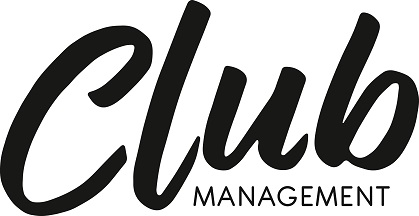By Andrew Lewis, Allara Global CEO
In the fast-paced world of pubs and clubs, training is a constant. We train for compliance – RSA, RCG, Food Safety – and rightly so. These are the non-negotiables, the very foundation of a safe and responsible venue. But I want to challenge all of us to think bigger. What if we viewed training not just as a cost to be managed or a box to be ticked, but as a powerful driver of profitability and growth?
Too often, we stop at compliance. But the data shows that this approach leaves a huge amount of value on the table. The venues that are truly excelling are the ones that invest in smarter training, and the returns they’re seeing are exceptional.
The financial case for investing in your people
Let’s look at the research. It’s easy to see training as an expense, but it’s one of the best investments you can make. A landmark report by Deakin University and Deloitte cut through the noise and put a hard number on this. Their findings were clear: for every $1 invested in Learning & Development (L&D) per employee, businesses saw an additional $4.70 in revenue per employee.
This financial return isn’t limited to just operational skills. A growing body of evidence shows a powerful ROI from also investing in our team’s well-being. Given the high-pressure nature of our industry, this is something we can’t afford to ignore. As highlighted in a recent article by Enterprise Professor Jane Burns, “According to PWC, for every $1 spent on workplace mental health, the average return is $2.30 in increased productivity, reduced turnover, and fewer compensation claims”.
That’s a direct financial benefit that comes from supporting your team’s mental health, leading to reduced absenteeism and higher productivity.
Don’t just train on tasks, develop skills
So, what does “smarter” training actually look like?
It begins by shifting our focus from simple task training to building genuine skills. A report from the global consulting firm McKinsey & Company perfectly captures the benefits of investing in your people and the impact it can have on your bottom line.
McKinsey’s report showed that the most successful and resilient businesses are those that treat people development as a core part of their entire operation—from communication and culture to leadership itself.
When you relate this to hospitality, think about training as more than just compliance, but as skills development through clearly laid out career pathways, while ensuring the team has access to tools that support clear communication and teamwork, so they can be successful in their roles.
So what would this training look like? Examples could be:
- Critical thinking and problem solving: Empowering team members to flawlessly handle a complex customer complaint on a busy Saturday night, turning a potential negative review into a compliment of great customer service.
- Communication and empathy: Training staff to not just sell, but to connect with your guests. This is the skill that turns a first-time visitor into a regular.
- Revenue management: Giving a promising team member the skills to optimise revenue streams and support your business growth.
- Leadership development: Investing in your team leads to develop their communication skills, team management, and operational skills, will have significant impact on team productivity and staff retention. It is widely researched that bad bosses are a leading cause for staff to leave a business, that impact your bottom line and team culture.
When we invest in these durable skills, we’re not just making someone better at their current job. We are building their confidence, their capability, and their value to the business for the long term.
We recently interviewed The Wests Group Australia in Newcastle, who invest heavily in their staff, through a blended learning approach, and provide staff with the opportunity to complete accredited training. Their strategy has paid off, as their Group Chief People Officer, Rachel Jones, explained how the investment led to tangible career advancements, where they have “seen individuals move from entry-level positions to significant leadership opportunities”.
The secret weapon – supportive leadership
Here’s the critical link: a great training program is only effective when leadership support it and create a culture of growth. Top-down support of any training initiatives is imperative to succeed in rolling out a formal staff development program.
Another piece of research from McKinsey identified the key qualities of a “better boss.” Unsurprisingly, a top characteristic was their ability to develop talent. A manager who simply checks if compliance training is complete is managing a task. A manager who actively advocates for their team to develop new skills and coaches or mentors them in their development is building a high-performance culture.
Solotel shared their approach when interviewed about their staff development program. Staff training is a core business priority for their leadership, to the extent that training progress data is “integrated into management KPIs and performance reviews, ensuring that training remains a top priority for everyone.”
Final thoughts
Let’s move our mindset beyond compliance. Investing in our people isn’t a soft-skill initiative; it’s the most effective strategy we have for building a resilient, profitable business with a culture that attracts and retains the best talent. The data is clear, the local success stories are undeniable, and the opportunity is right in front of us. The venues that win the future will be the ones that build the best people today.

